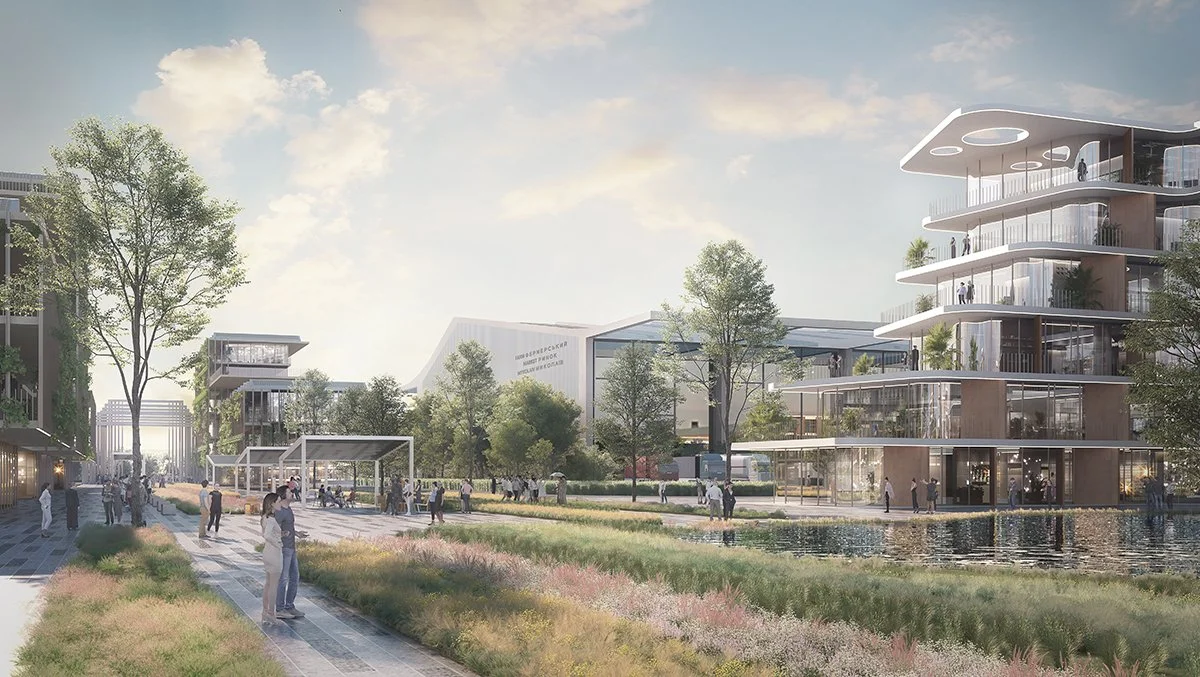
UN4Mykolaiv Initiative
The conflict in Ukraine has caused extensive destruction to urban areas and critical infrastructure, including housing, industry, cultural landmarks, transportation, water and energy systems.
Despite these difficulties, the Ministry for Development of Communities and Territories of the Ukrainian Republic has drafted recommendations to guide the reconstruction of cities and infrastructure damaged by the conflict. To implement these recommendations, the Ukrainian Government and the United Nations Economic Commission for Europe (UNECE) have established a Task Force of sixteen UN agencies. This team is dedicated to promoting innovative urban reconstruction in selected Ukrainian cities.
As an active partner of the UNECE Center of Excellence of LIUC University – Sustainable Finance for Cities and Infrastructure, the One Works Foundation has been enlisted to assist in the resilient reconstruction of Mykolaiv, one of Ukraine’s key cities. This collaboration aims to restore and enhance buildings, infrastructure, and public spaces with a focus on sustainable recovery.
The development of a strategic, forward-looking concept masterplan is a key component of the UN4UkrainianCities project, implemented by the UNECE, funded by the German Federal Ministry for Economic Cooperation and Development (BMZ) and supported by the Deutsche Gesellschaft für Internationale Zusammenarbeit (GIZ) GmbH.
A vision for the people
The One Works Foundation is actively collaborating with the Mykolaiv City Council, local specialists, and the community, and is also leading an international coalition of industry experts led by One Works (outlined below). Together, they have examined the city’s current challenges and developed the concept masterplan and strategic guidelines necessary for the successful and sustainable reconstruction of the city.
Building on a robust community engagement plan, including online consultations, surveys, and capacity-building workshops, residents and businesses shared and discussed their views for the future of Mykolaiv. From these activities, the team defined six operational goals and four key themes to guide the concept masterplan and supporting strategies.
with the support of:
Masterplan Operational Goals
Environmental, social, and economic sustainability will be at the core of this master plan approach and is critical for creating a vision for the future of Mykolaiv. Most importantly, with cities producing 60% of the world’s CO2 emissions today (particularly transportation, industry, and the built environment) any forward-thinking masterplan needs to tackle these issues to make the cities of tomorrow truly resilient, as we aim to do holistically with the following foundational pillars.
Benchmark Pilot Projects
To begin the realisation of the Mykolaiv masterplan, several Pilot Projects are being explored, each coherent with the six design pillars. These pilot projects focus on distinct areas like housing and transport, aiming to formulate tangible solutions through collaboration with architects, engineers, and international consultants, learning from each to influence broader city development. This approach develops real solutions, informs local capacities and policies, and fosters a connection between local and international professionals, enhancing long-term resiliency in Mykolaiv.
Published Reports
This collection of reports explores key themes and projects that are shaping the future of Mykolaiv City and its communities.
-
Mykolaiv Concept Masterplan: Damage Assessment.
Read here -
Mykolaiv Concept Masterplan: Vision and Strategy.
Read here -
Mykolaiv Concept Masterplan: Concept Designs.
Read here -
Mykolaiv Concept Masterplan: Innovation District.
Read here -
Output 4 - Mykolaiv Concept Masterplan: Graphic and Digital Deliverables. Read here












